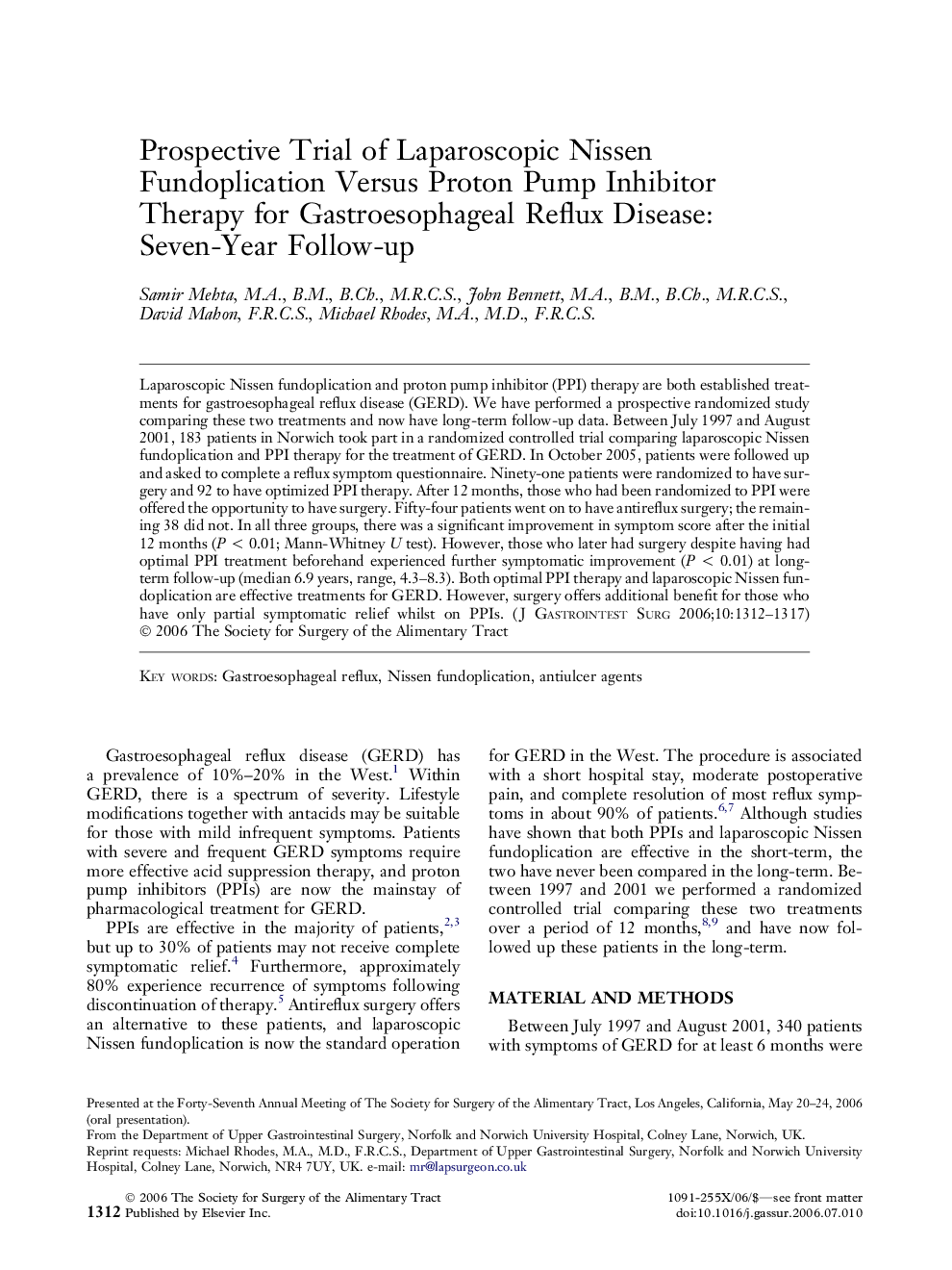| Article ID | Journal | Published Year | Pages | File Type |
|---|---|---|---|---|
| 4297194 | Journal of Gastrointestinal Surgery | 2006 | 6 Pages |
Abstract
Laparoscopic Nissen fundoplication and proton pump inhibitor (PPI) therapy are both established treatments for gastroesophageal reflux disease (GERD). We have performed a prospective randomized study comparing these two treatments and now have long-term follow-up data. Between July 1997 and August 2001, 183 patients in Norwich took part in a randomized controlled trial comparing laparoscopic Nissen fundoplication and PPI therapy for the treatment of GERD. In October 2005, patients were followed up and asked to complete a reflux symptom questionnaire. Ninety-one patients were randomized to have surgery and 92 to have optimized PPI therapy. After 12 months, those who had been randomized to PPI were offered the opportunity to have surgery. Fifty-four patients went on to have antireflux surgery; the remaining 38 did not. In all three groups, there was a significant improvement in symptom score after the initial 12 months (P < 0.01; Mann-Whitney U test). However, those who later had surgery despite having had optimal PPI treatment beforehand experienced further symptomatic improvement (P < 0.01) at long-term follow-up (median 6.9 years, range, 4.3-8.3). Both optimal PPI therapy and laparoscopic Nissen fundoplication are effective treatments for GERD. However, surgery offers additional benefit for those who have only partial symptomatic relief whilst on PPIs.
Related Topics
Health Sciences
Medicine and Dentistry
Surgery
Authors
Samir M.A., B.M., B.Ch., M.R.C.S., John M.A., B.M., B.Ch., M.R.C.S., David F.R.C.S., Michael M.A., M.D., F.R.C.S.,
